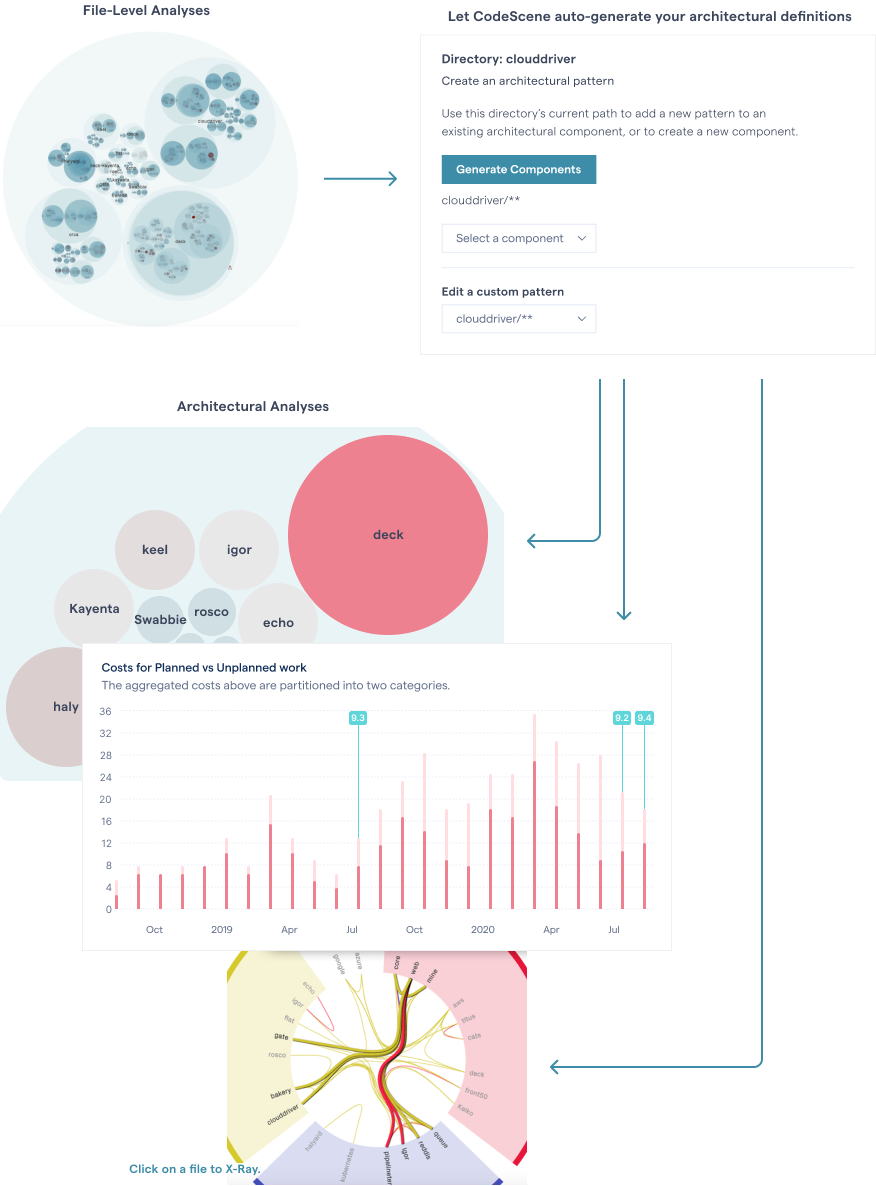We’re proud to announce a new release of CodeScene on-prem, version 4.2.
CodeScene on-prem Release 4.2
CodeScene’s architectural analyses are powerful; they let you view code health trends for whole sub-systems and services, and also detect team coordination issues and knowledge silos at a high level. In this release we make the architectural analysis more accessible by providing support for automatically generating the architectural definitions.

Let CodeScene auto-generate your architectural definitions so
that you can analyse hotspots, coupling, and knowledge distribution on a system level.
We have also expanded CodeScene’s delta analysis with a detailed code review of new files with lower code health. The delta analysis is typically used as a quality gate integrated with pull requests in GitHub/BitBucket/GitLab/Azure Devops. This helps you detect potential problems early when they are still affordable to fix, and the added code review makes the findings actionable.
CodeScene supervises new code and identifies potential design issues when the code is included in a pull request.
Then there’s the other side of the coin; when code is successfully refactored, we want to provide that feedback too:
CodeScene provides positive reinforcements on refactoring and design improvements via its code health metric.
CodeScene’s code health metric is language specific and requires support for each programming language. In this release, we expand our support to also include the PowerShell language. In total, CodeScene now supports 28 programming languages.
CodeScene 4.2 includes many other improvements and feature additions. The full release notes are included with the product.
We hope you will enjoy these new features as much as we do! Read more about CodeScene here.